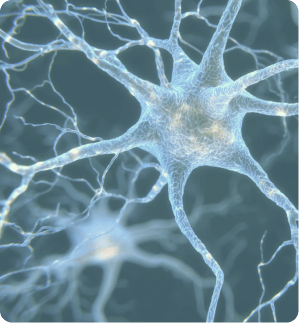Magnesium is essential in supporting the body’s metabolic functions, from energy production to muscle and nerve health. However, an estimated 60% of adults don’t get enough magnesium in their diet, and around 45% of Americans are magnesium deficient. This deficiency has been linked to serious health issues like high blood pressure, type 2 diabetes, and neurological disorders.


magnesium deficiency, the best ways to test your levels, and what to do for magnesium deficiency. You’ll also learn simple steps to restore your magnesium balance and know when it’s time to seek medical advice.
Continue reading!
What is magnesium and why is it important for the body?
Magnesium is a mineral found in the earth, sea, plants, animals, and humans. The human body contains approximately 21–28 grams of magnesium, with the majority stored in bone (>53%) and about 19% in non-muscular soft tissues. The remaining magnesium circulates in blood and other fluids, supporting critical metabolic functions.

It’s often called a “helper” molecule because it assists with more than 300 enzyme systems that regulate diverse biochemical reactions. These include energy production, muscle and nerve function, blood sugar control, and blood pressure regulation.
Put simply, without sufficient magnesium, your body struggles to function optimally.
What are the main functions of magnesium in the body?
Magnesium plays a role in nearly every process in your body, including:
- Muscle health: Magnesium regulates the flow of calcium and potassium across cell membranes, enabling muscles to contract and relax properly. Low magnesium can cause persistent muscle cramps, twitches, or even spasms.
- Nerve transmission: This mineral helps regulate neurotransmitters, which are vital for healthy nerve signaling. Without sufficient magnesium, nerve function can become erratic, leading to symptoms of magnesium deficiency, such as tingling, numbness, or heightened sensitivity.
- Energy production: Magnesium is required to produce adenosine triphosphate (ATP), the body’s primary energy molecule. A deficiency can impair energy metabolism, contributing to chronic fatigue and weakness.



- Heart rhythm stability: It supports the electrical impulses that keep your heart beating consistently. Magnesium deficiency is often associated with arrhythmias, or irregular heartbeats.
- Bone strength and density: About two-thirds of the body’s magnesium is stored in bones. It works in conjunction with calcium and vitamin D to maintain bone structure and may reduce the risk of osteoporosis when levels are sufficient.
- Blood sugar and insulin regulation: Magnesium influences insulin secretion and glucose uptake in cells. Low levels are associated with insulin resistance and a higher risk of type 2 diabetes.
Because magnesium affects so many systems, low magnesium symptoms can range from subtle issues like twitches to severe complications such as arrhythmias or unstable blood sugar.
What causes magnesium deficiency?
Magnesium deficiency, or hypomagnesemia, occurs when intake doesn’t meet your body’s needs or losses outpace replenishment. The reasons are both environmental and biological:
- Poor dietary intake: Consuming magnesium-deficient foods only, such as leafy greens, nuts, seeds, and whole grains, is a common cause.
- Excessive alcohol use: In case you are wondering, “Can alcohol cause magnesium deficiency?” Yes, it acts as a diuretic, increasing magnesium loss through urine and impairing absorption in the gut.




- Certain medications: The long-term use of acid-suppressing drugs, such as proton pump inhibitors (PPIs) and antacids, as well as diuretics and certain antibiotics, can lower magnesium levels by reducing absorption or increasing urinary loss.
- Chronic health conditions: Diseases such as diabetes, Crohn’s, and celiac disease interfere with absorption, increasing the risk of magnesium deficiency symptoms.
- Higher magnesium demands: Pregnancy, breastfeeding, and chronic stress raise your body’s magnesium needs, making deficiencies more likely if intake isn’t adjusted.
Even people with no underlying health conditions can develop deficiencies if their diet falls short over time.
What are the most common early symptoms of magnesium deficiency?
Early signs of magnesium deficiency are often subtle and easily overlooked. They include:
- Muscle cramps or twitches (especially in the legs and feet)
- Fatigue and low energy
- Loss of appetite
- Nausea or vomiting
- Tingling or numbness in the extremities
- Headaches or migraines
- Irritability and mood changes


These symptoms of low magnesium in the body may be attributed to other causes, but should not be ignored.
What are the more serious or long-term symptoms if left untreated?
If magnesium deficiency progresses, more severe symptoms can develop, such as:
- Abnormal heart rhythms (arrhythmias)
- Muscle weakness and tremors
- Seizures
- Personality changes, depression, or anxiety
- Osteoporosis due to impaired calcium metabolism
- High blood pressure and increased risk of cardiovascular issues
Severe hypomagnesemia requires urgent treatment. Knowing how to fix magnesium deficiency early can help avoid these risks.

Who is most at risk of developing magnesium deficiency?
While anyone can develop low magnesium levels, certain groups face a higher risk due to changes in absorption, increased loss, or higher bodily demands:
- Older adults: Aging reduces the body’s ability to absorb magnesium in the gut while increasing its loss through the kidneys. Poor appetite, chronic illnesses, and common medications in this group further raise the risk.
- People with gastrointestinal disorders: Conditions like Crohn’s disease, celiac disease, and chronic diarrhea impair magnesium absorption by damaging the intestinal lining. Surgical removal of parts of the gut (such as in short bowel syndrome) also contributes.
- Individuals with type 2 diabetes or insulin resistance: High blood sugar increases magnesium loss in urine (magnesiuria). Over time, this can lead to a cycle in which magnesium deficiency exacerbates insulin resistance.


- Heavy alcohol consumers: Alcohol acts as a diuretic, leading to greater urinary magnesium loss. It also disrupts magnesium transport in the intestines and kidneys.
- Pregnant and breastfeeding women: Magnesium requirements increase significantly during pregnancy, particularly in the third trimester, due to fetal development and increased maternal blood volume. Without dietary adjustments, deficiency is common.
- People taking certain medications: The long-term use of diuretics, proton pump inhibitors (for acid reflux), and some antibiotics can lower magnesium levels by interfering with absorption or increasing urinary loss.
If you fall into these categories, regular testing and learning how to check for magnesium deficiency is recommended.



Can magnesium deficiency be tested at home?
Yes, you can check your magnesium levels from home using convenient at-home test kits. Services like Easly’s magnesium deficiency test provide a simple finger-prick blood collection kit that you mail to a certified lab for analysis. The results are then delivered securely online, making it easier to monitor your magnesium status without needing to visit a clinic.

These tests measure serum magnesium levels, providing a helpful snapshot of your current magnesium levels. However, it’s essential to understand that serum magnesium accounts for only about 1% of the total magnesium in your body, as most magnesium is stored in bones and tissues. This means normal serum levels don’t always rule out tissue-level deficiencies.
For a more in-depth assessment, healthcare providers may recommend additional tests such as:
- Red blood cell (RBC) magnesium test: Measures magnesium within your red blood cells to provide a more accurate reflection of stored levels.
- Magnesium retention test: This test involves administering a small dose of magnesium and measuring how much your body excretes versus retains, which can help evaluate magnesium deficiency.
For those learning how to test for magnesium deficiency at home for the first time, this method provides a practical first step in identifying deficiencies and preventing long-term health impacts. At-home testing can also be combined with medical follow-up if necessary.
What are the options for early detection?
There are several ways to detect magnesium deficiency. Here is how they compare:
| Test Type | How it works | Pros | Cons |
|---|---|---|---|
| Home blood test | Finger-prick sample sent to a lab | Convenient, fast results | Less precise for tissue magnesium |
| Serum magnesium (lab) | Blood draw at a clinic | Widely available, baseline indicator | May miss early tissue-level depletion |
| RBC magnesium (lab) | Measures magnesium in red blood cells | More accurate for assessing stores | Less commonly ordered |
| Magnesium retention | IV magnesium followed by urine testing | Gold standard for magnesium status | Requires a clinical setting |
Home testing can be a good starting point, especially if you’re experiencing symptoms.
What steps can you take to prevent or address deficiency early?
If you suspect magnesium deficiency or belong to a high-risk group, taking action early can help restore healthy levels and prevent complications. Evidence-based strategies include:
- Prioritize magnesium-rich foods: Build your diet around whole foods naturally high in magnesium, such as leafy greens (spinach, kale), nuts and seeds (almonds, cashews, pumpkin seeds), whole grains (quinoa, brown rice), and legumes (black beans, lentils). Regularly consuming these foods helps support daily magnesium needs and replenish depleted stores.
- Limit alcohol and caffeine intake: Both substances increase urinary magnesium loss. Reducing consumption can help your body retain more of this vital mineral.
- Manage stress effectively: Chronic stress raises magnesium demands in the body. Practices such as deep breathing, yoga, and regular physical activity can help reduce stress-related depletion.



- Consider supplementation when needed: For individuals who are unable to meet their requirements through diet alone, supplements may be beneficial. Magnesium citrate and magnesium glycinate are well-absorbed options with fewer gastrointestinal side effects than magnesium oxide.
Note: Always consult a healthcare provider before starting supplements, especially if you have kidney issues or take medications that affect magnesium balance.
- Monitor magnesium levels: Regular testing, including at-home options like the Easly magnesium deficiency test, can help track your status over time and guide interventions.
For vegetarians and vegans, it’s imperative to include unprocessed, magnesium-rich plant foods. Highly processed plant-based diets can still fall short, increasing the risk of deficiency even in individuals with otherwise healthy eating habits.

When should you see a doctor?
See a doctor if you experience ongoing symptoms, such as muscle cramps, fatigue, tingling, or irregular heartbeat. It’s also important to seek medical advice if you’re in a high-risk group, such as those with gastrointestinal conditions, type 2 diabetes, or long-term use of diuretics or proton pump inhibitors, or if at-home test results show low or borderline magnesium levels.
A healthcare provider can order advanced tests, like red blood cell magnesium or retention tests, and recommend treatment, which may include dietary changes, supplements, or intravenous magnesium for severe cases.
Conclusion
Magnesium deficiency is more common than you might think, and its symptoms often mimic other health issues. The good news? It’s easily preventable and treatable once detected.
If you’re noticing signs like muscle cramps, low energy, or tingling sensations, consider testing your levels early. Home testing kits offer a convenient first step, but a professional evaluation may be necessary for a comprehensive picture.
Want to take the guesswork out of it? Order your magnesium deficiency test today and get results from the comfort of home.
Sources
- National Library of Medicine – Challenges in the Diagnosis of Magnesium Status
- Bestpractice – Assessment of magnesium deficiency
- Medical News Today – Why do we need magnesium?
- Voedingscentrum – Magnesium
- Wikipedia – Magnesium deficiency
- lareb.nl – Mineralentekort en maagzuurremmers
- Easly – Diabetes test
- medlineplus.gov – Magnesium deficiency
- Easly – Magnesium deficiency test








